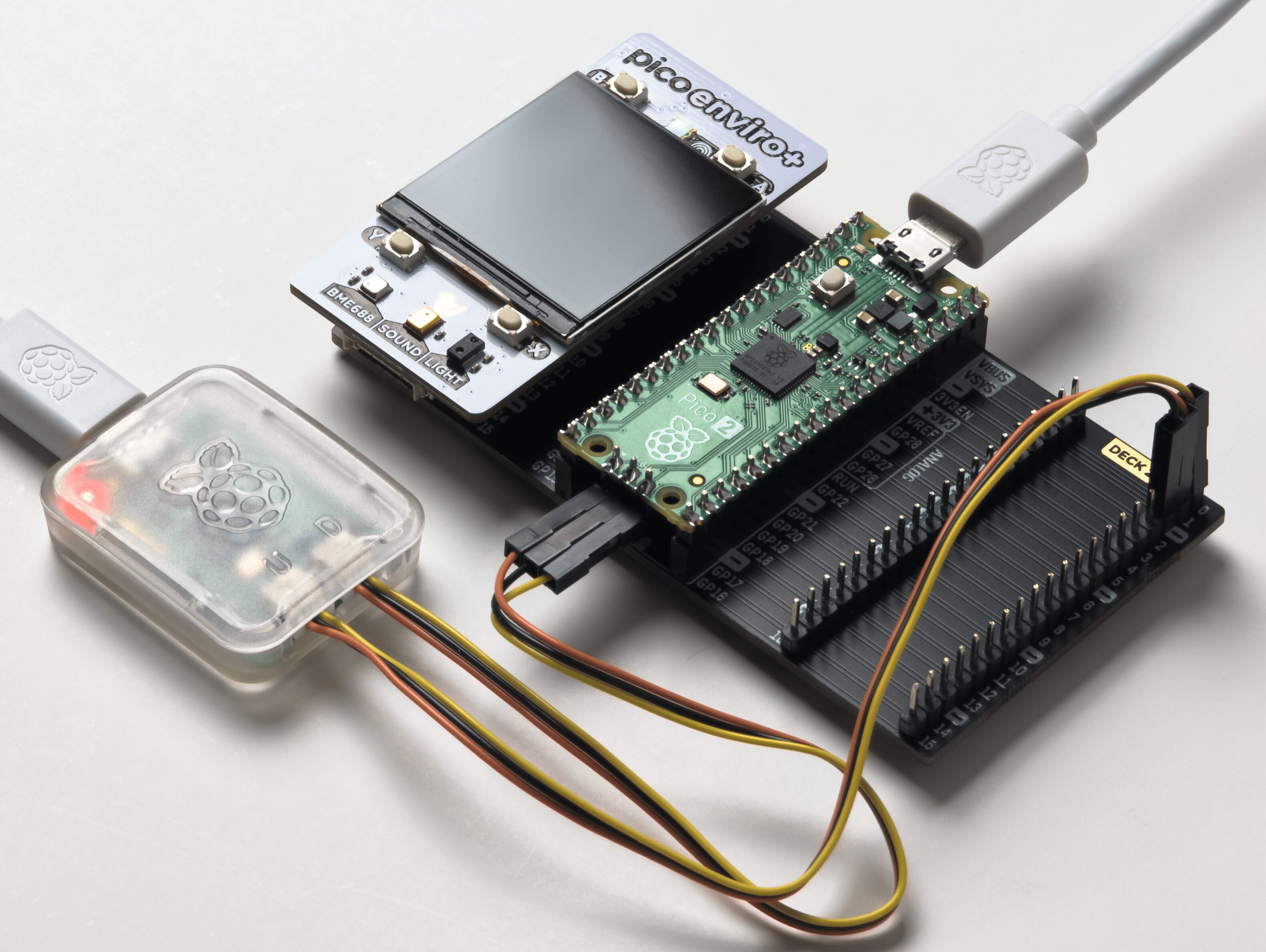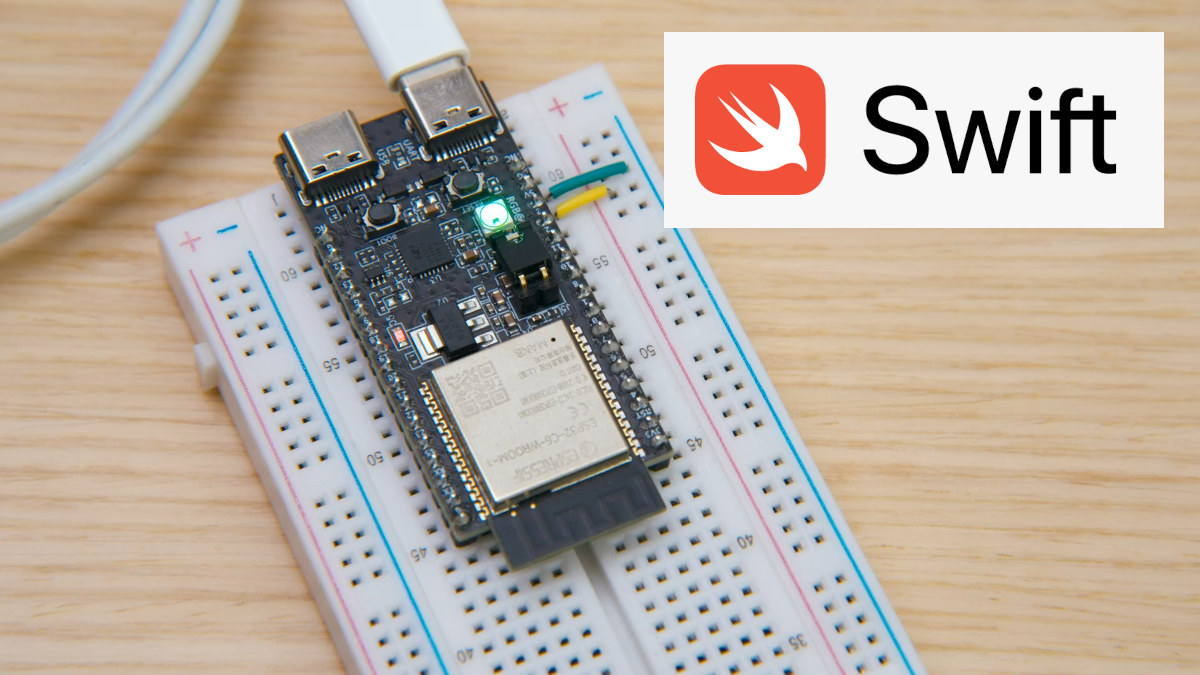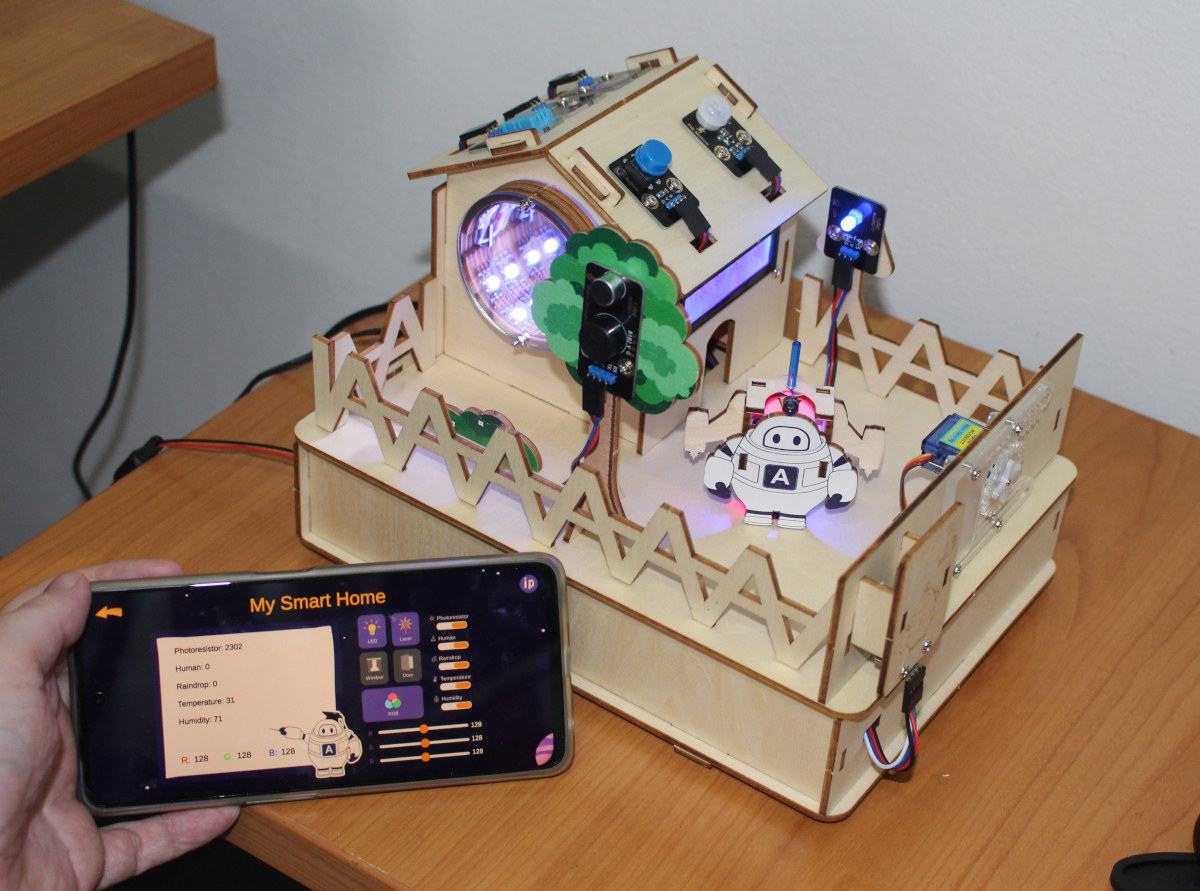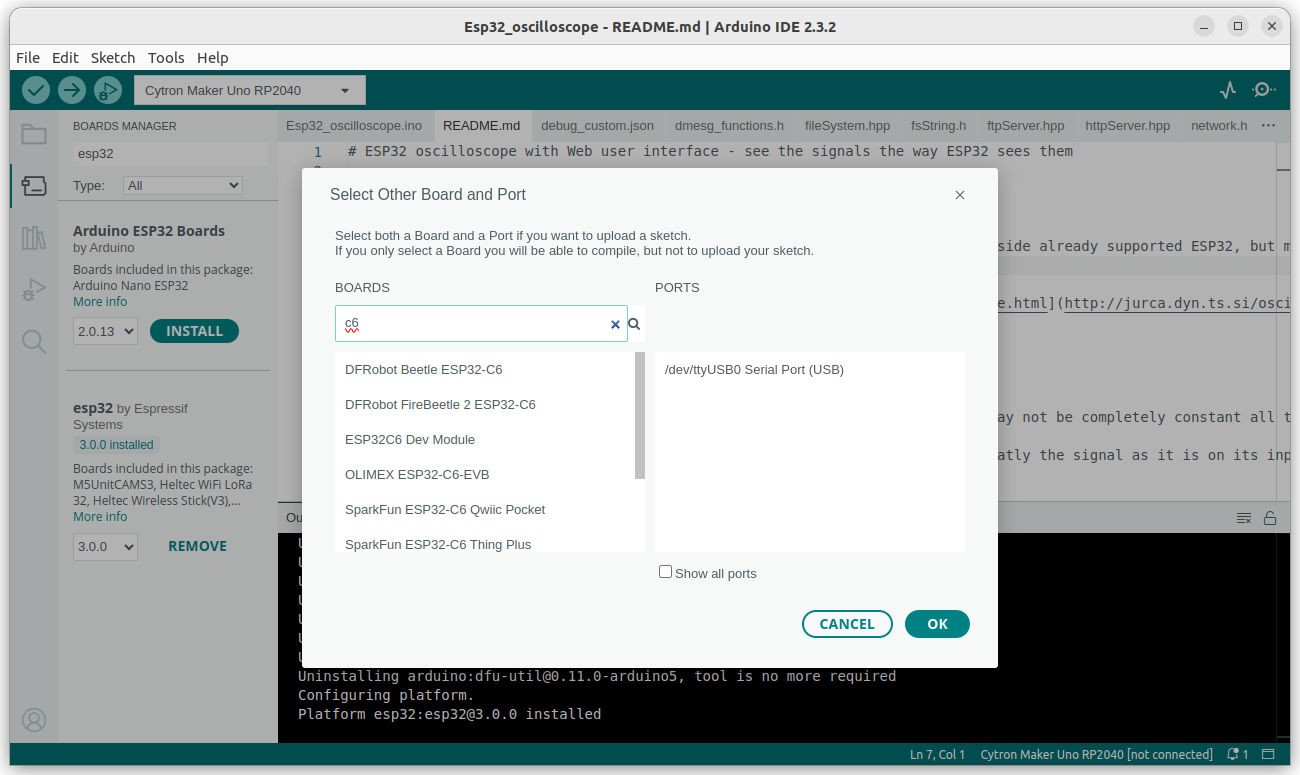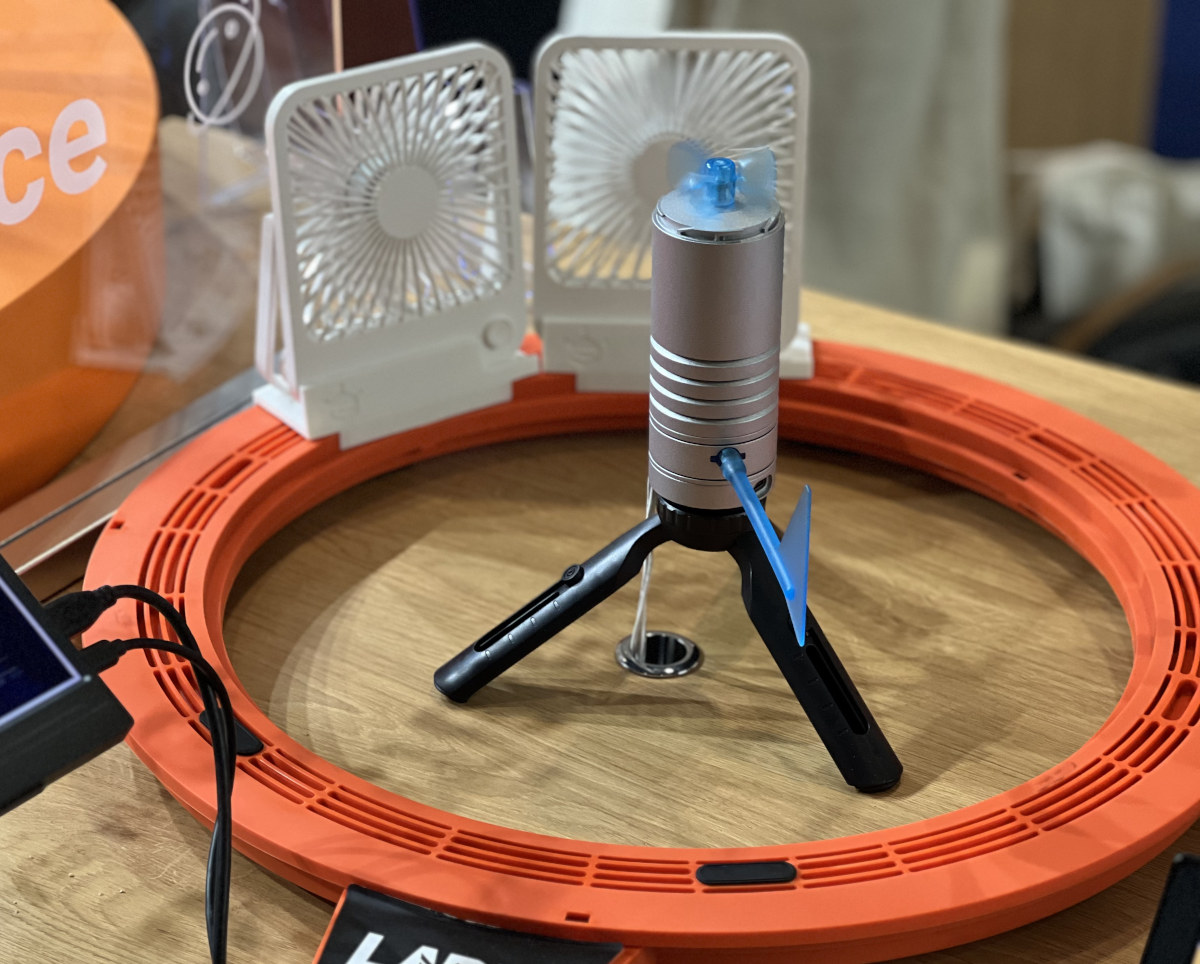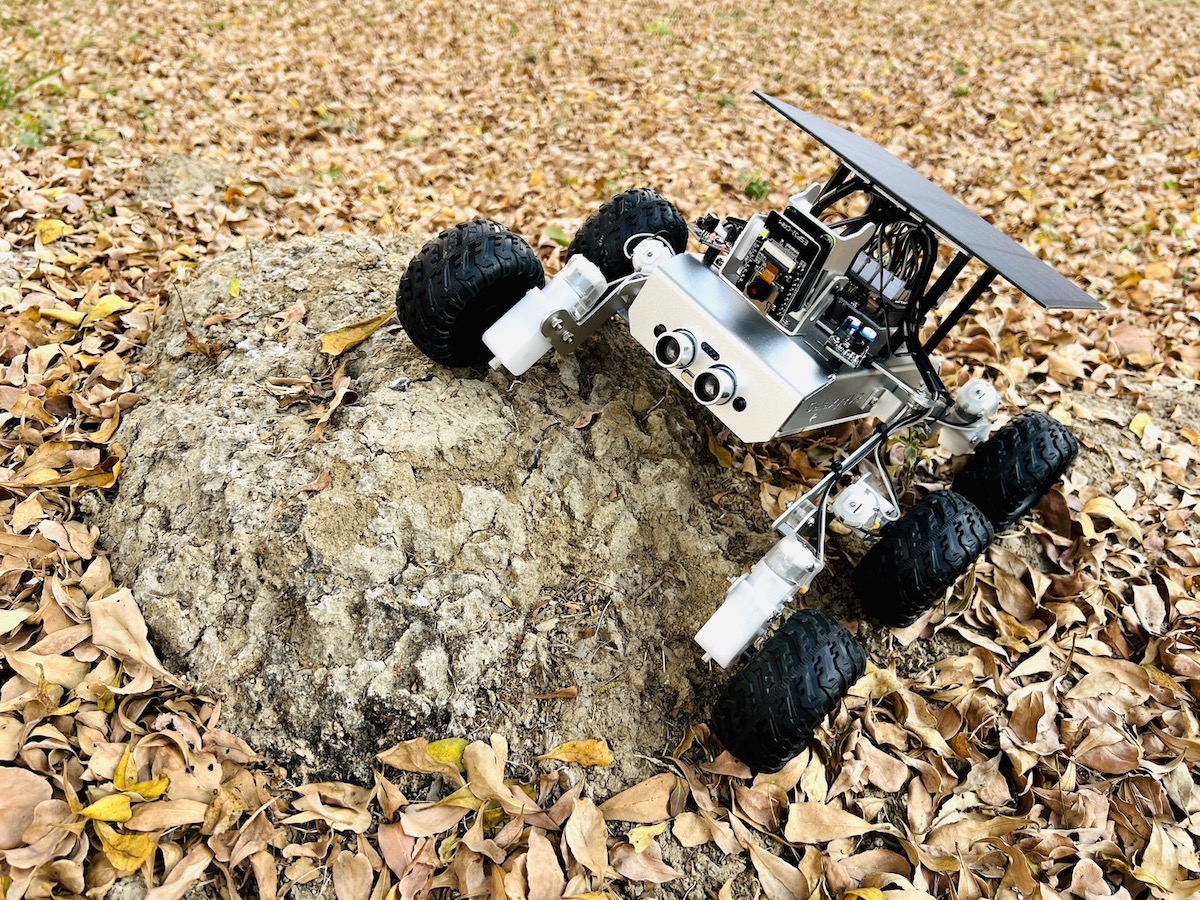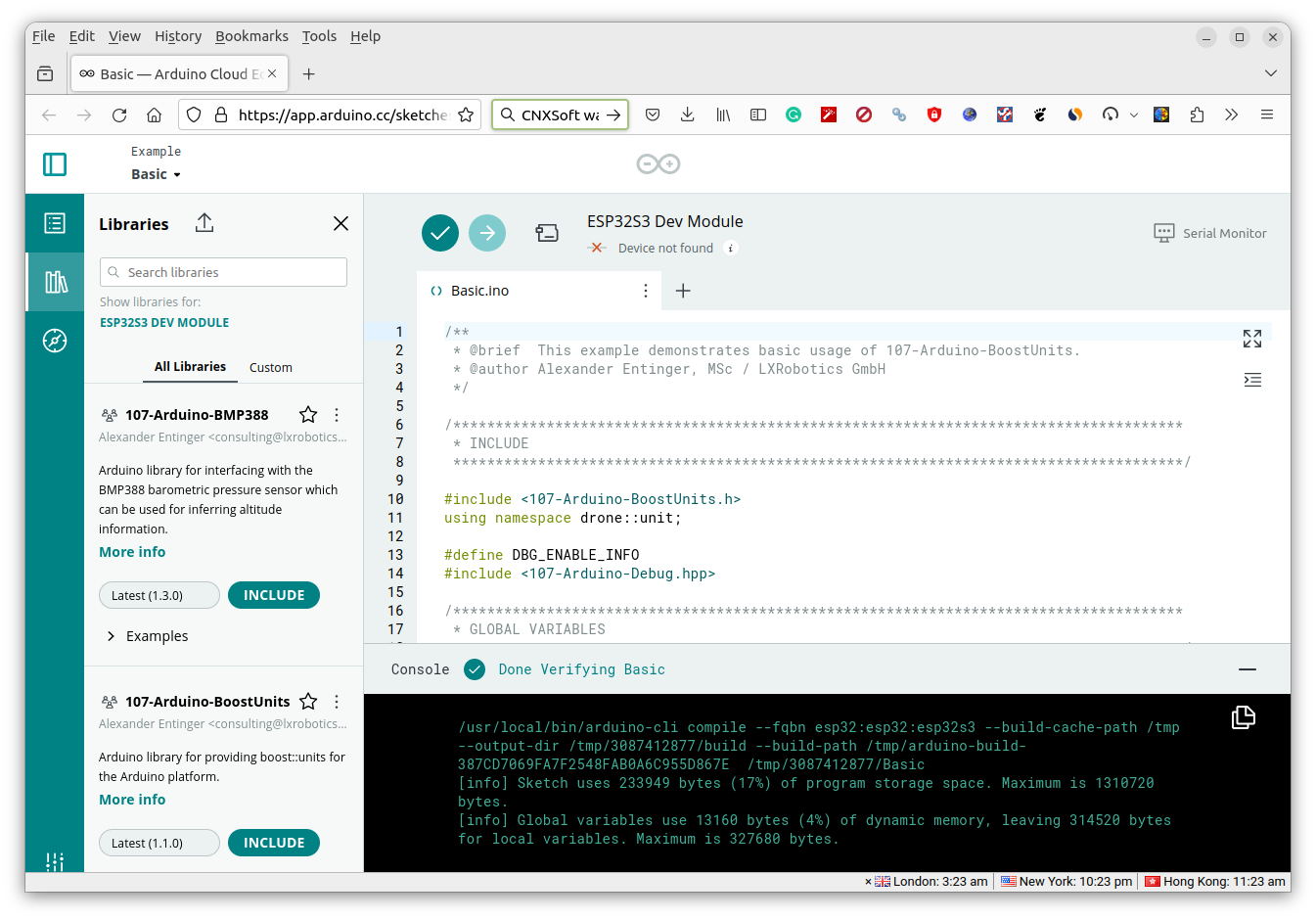The MoreSense MS-06 is an ESP32-S3-based air quality monitor that takes CO², temperature, and humidity readings through a Sensirion SCD40 sensor which offers reliable performance and a lifespan of more than ten years. The MS-06 monitor’s results are identical to the Aranet4’s (considered best-in-class), putting it in a pretty good spot accuracy-wise. It is the latest entry in the MoreSense line of air quality monitors and comes with a more compact design and a touchscreen display. The built-in web server runs an interface that displays measurements, historical data visualizations, setup options, and firmware updates. Operation is completely local; sensor data can be stored on the device or a microSD card. The MoreSense MS-06 air quality sensor can be used to control a ventilation system, contributing to significant energy savings. This can be achieved through your home automation system or by using a smart plug. MoreSense MS-06 specifications: Microcontroller – ESP32-S3 […]
Google Pigweed SDK now supports Raspberry Pi RP2350 microcontroller
Google Pigweed, a collection of open-source libraries for embedded software development, now supports the Raspberry Pi RP2350 MCU and comes as a software development kit (Google Pigweed SDK). These libraries, also called modules, are building blocks that make embedded software development faster and more reliable. It targets tiny 32-bit microcontrollers such as STMicro STM32L452, Nordic Semi nRF52832, and the Raspberry Pi Pico line of microcontrollers. The library components have shipped in Google Pixels, Nest thermostats, robots, satellites, and drones. On August 8, the Pigweed project was released as a software development kit (SDK) in developer preview with official support for Raspberry Pi RP2350 and the associated Pico 2 development board. The new release uses the Bazel build system – a feature upstreamed into the Pico SDK by the Google Pigweed team – and a complete, open-source Clang/LLVM toolchain. The Google Pigweed SDK includes sample code, modules, and a comprehensive tutorial […]
Apple’s Embedded Swift programming language supports ESP32-C6, Raspberry Pi RP2040, STM32F7, nRF52840 microcontrollers
Apple has released a beta version of Embedded Swift that notably works with Espressif ESP32-C6 wireless RISC-V microcontroller, and the company also built a Matter sample based on ESP-IDF and ESP-Matter SDKs. Embedded Swift is not limited to the ESP32-C6 and supports other microcontrollers from STMicro, Raspberry Pi, Nordic Semi, etc… Apple Swift programming language is mostly designed for mobile app development, but we’ve also seen it being used on Mad Machine’s SwiftIO board powered by a 600 MHz NXP i.MX RT1052 Arm Cortex-M7 crossover processor and the tiny SwiftIO Micro launched a few years later. The company has now decided to create a subset of the Swift programming language better suited to microcontrollers simply called Embedded Swift that’s currently working on STMicro STM32F746, Raspberry Pi Pico, nRF52840, and ESP32-C6. The “Go small with Embedded Swift” presentation at WWDC 2024 shows how to get started with Embedded Swift using Espressif […]
ACEBOTT QE007 review – An ESP32-based Smart Home STEAM education kit for 8+ years old kids
ACEBOTT QE007 ESP32-based Smart Home Starter Kit is a STEAM (Science, Technology, Engineering, Arts, and Maths) education platform that involves story reading, assembling a wooden house with various electronics sensors wired to an ESP32 board, and learning about electronics concepts (such as voltage and current) and coding with the Arduino IDE through an 18 lesson course. ACEBOTT has various STEAM education kits, and the company sent us the QE007 “IoT Smart Home Starter Kit” for evaluation and review. So I’ll go through an unboxing, report my experience with the assembly process, and the Arduino tutorials by going through some of the eighteen lessons. ACEBOTT QE007 unboxing The kit comes in a nice-looking retail that reads “ACEBOTT Explorer Series QE007” and “ACEBOTT IOT Smart Home Started Kit”. The front of the package also highlights its a STEAM education kit designed for 8+ years old kids. The bottom side gives the backstory […]
Espressif releases Arduino ESP32 Core 3.0.0, but PlatformIO support is in doubt
We previously noted the ESP32 Arduino Core 3.0.0 Alpha release added support for ESP32-C6 and ESP32-H2 among other changes. The good news is that Arduino ESP32 Core 3.0.0 is now considered stable, and was released a few days ago based on the ESP-IDF 5.1.4 framework. Users of the Arduino IDE can use it straight away, but as we’ll discuss in more detail below it’s unclear whether PlatformIO will be (officially) supported. There have been many changes since we wrote about the Alpha2 release in November 2023 with 327 commits from 96 contributors. Some of the most recent changes (compared to RC3) include: Updated ESPDuino with extra options (CPU freq and Partition) Add support for WeAct Studio ESP32C3 Attach ETH events at the correct place Enable the possibility to use SPI ETH with only 4 wires Fix ETH.end() Fix ETH.stop() with IDF SPI Nano ESP32: delete programmer.default entry (on main) due […]
The Lark Weather Station works with Arduino, ESP32, micro:bit, Raspberry Pi, and other boards
The Lark Weather Station measures wind speed, wind direction, temperature, humidity, and air pressure through a range of sensors and connects to popular development boards such as Arduino UNO, ESP32, BBC micro:bit, Raspberry Pi, or DFRobot Unihiker through I2C or UART. We’ve seen several projects for Internet-connection weather stations that retrieve weather data from the web and display the results locally, but the Lark Weather Station allows the users to get atmospheric data right in his/her current location thanks to its built-in anemometer, wind vane, and built-in sensors, as well as expansion interfaces for additional sensors. Lark Weather Station specifications: Storage – 16MB flash good to store about 160 days of data (when data is recorded once per minute) Sensors Compass Anemometer Wind Speed: 0.5~12m/s Cover to protect the anemometer during storage/transport Wind vane and wind direction shaft to report the wind direction (eight directions) Temperature Range –20~60℃ ±0.2℃ Humidity […]
SunFounder GalaxyRVR review – An Arduino programmable Mars Rover-like robot for education
SunFounder sent us a GalaxyRVR 6-wheel robot for review. It looks like NASA’s Mars Rover robots but targets the education market with an Arduino UNO R3 compatible board and an ESP32-CAM board for WiFi connectivity and video capture. The GalaxyRVR robot kit can transmit video signals over WiFi to explore planet Earth with your mobile device or tablet and the camera can be adjusted up and down thanks to a servo motor. The robot gets its power from a solar panel coupled with a battery and features sensors such as obstacle avoidance and ultrasonic modules. NASA’s Mars Rover exploration robots NASA is currently using the Perseverance rover, also known as Percy, as the latest planetary exploration robot to land on Mars. It is designed to explore the Jezero Crater as part of NASA’s Mars 2020 mission. In addition to its scientific instruments, Perseverance also carries Ingenuity, a small experimental Martian […]
Arduino Cloud Editor update brings the classic Arduino IDE experience to your web browser
Arduino has updated the Arduino Cloud Editor – which started as Arduino Create several years ago – to bring the web-based code editor closer to the appearance and functionalities of the “classic” Arduino 2.0 IDE. Arduino says the Cloud Editor simplifies the getting started process without having to go through the setups or maintenance required by the Arduino IDE installed on your computer and you can access your sketches easily from the cloud wherever you are. Considering the Arduino Cloud Editor has been around for a few years what has changed exactly? First, the Cloud Editor and the Arduino IDE now have a unified design (sort of), although the way the company frames it is a bit abstract: Traditionally, Arduino Cloud had two separate editors: an embedded simple one and the full editor. Users have long awaited a unified editor that gets the best of each one. The new Cloud […]



